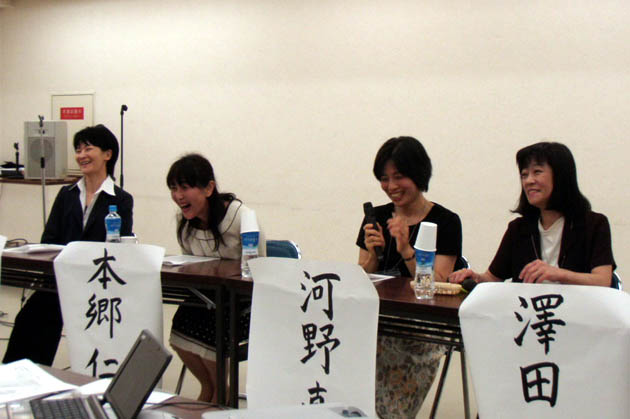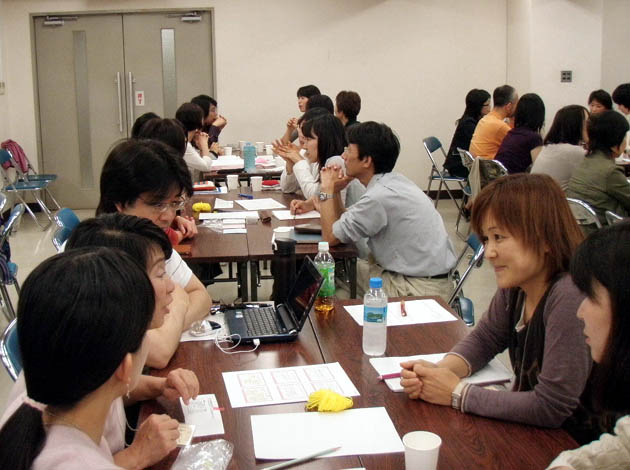
I attended the Kinki Local Congress of the Japanese Society of Adlerian Psychology. Since I had retired from all the post of the society, this time I was able to participate the meeting as a common member without any official responsibility. How happy was I!
An ancient Chinese proverb: “The happiness draws many devils.” In the process of preparation, a committee member often asked me for advice. Her main problem was how to organize members of a symposium. She was the boss of the academic side of this congress, and the chairperson of the symposium. She had a clear idea about presentation: She did not expect past “hard luck stories”, but concrete plans to the future. Members, however, wanted to talk about their past success and failure. When she asked them to cut off their stories, they blamed her for being too autocratic. Their discussion was held on an internet bulletin board, and I was able to trace it. The long stories of the members also seemed to me unnecessary. When she tried to cut off those stories, however, some of the members became emotional. She was an extraordinary rational lady, and could not understand why people were so upset. “This is a scientific talk. The emotions are unnecessary,” she said. She was embarrassed and at a loss.

In Japan, democracy is understood that “all matters shall be decided by public discussion” [1]. The idea of “democratic leadership” is not well recognized here. Even when people choose someone as a leader in election, they often claim the right to intervene in the leader’s every decision. Usually, leaders are good at telepathy and predict the intention of people beforehand. As a result, the politics often fall into populism, and the policy is swaying sometimes to the right and sometimes to the left.
She, however, has no talent of telepathy, and was tough enough to insist her policy. The drama was getting more and more tragic. The relations between the leader and the members were totally vertical, as they struggled to decide who the boss was. To actualize the horizontal relationship, at first, they had to remember their own roles, and, then, to divide the work to achieve the common goal. The horizontal relationship does not mean that everyone has the same role. As Dreikurs pointed out, resistance occurs when people do not share the same goal. I advised her to reestablish the goal at first. She did so, but it was too late. Thanks to the goal alignment, the members obeyed her, but unwillingly, and the symposium was rather monotonous without any passion, even not boring.
We must learn lessons from this experience. First, the goal alignment is enormously important for collaboration. Second, the horizontal relationship is to be maintained; i.e. we should learn about democratic leadership and democratic division of work.
[1] Oath in Five Articles of The Emperor Meiji.

